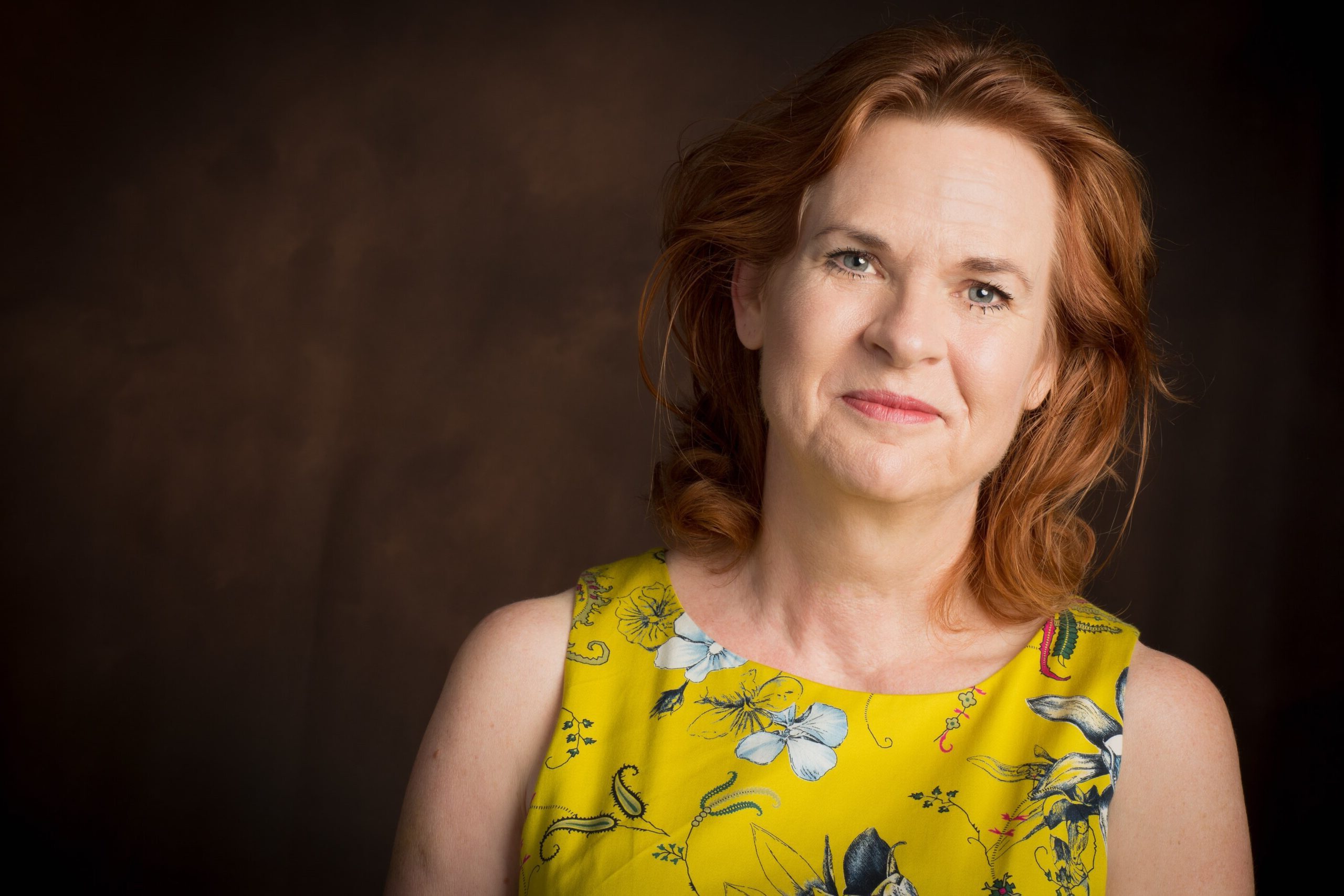Not many organisations define their values and service practice succinctly and in a way that captures your imagination. Rembrandt Living, an aged care residential service, has an organisational ethos that is clearly articulated in one word: ‘Gezellij’. This Dutch word is complex and does not have a straightforward English translation. But once understood it is full of potential and imagination for driving the highest quality staff recruitment and care.
Deb Dutton, Rembrandt Living’s CEO, described Gezellij as a tangible experience, a feeling of warm welcome when you first walk in the front door. But warm does not even begin to capture the essence of Gezellij .
Deb says “It’s being known well by everyone you meet, known by your first name, greeted with friendship and being included in all the small ways that make up our community. Gezellij can also be loud and silly and fun.”
Deb continues “Every decision we make and action we take is informed by Gezellij. Our difference is that we want our residents to feel that they are at home, in their home, and demonstrate that with everything we do. In every conversation we have, every interaction with a staff member. We openly touch our residents, respectfully, when they initiate this.”
The Embodiment of Ultimate Respect
Ultimate respect is a core value that drives Deb’s leadership style. Deb described this as values in action. “We talk and listen to residents a lot, to the small comments, small complaints, to what they find important, because this is their home. From listening to the small things, we can paint a bigger picture and stay mindful of the dynamics of the organisation.
“We know we spend more time with the elders who live here, than they do with their family members and we do with our own family. It’s vital that the spirit of this place is informed by the need we all have for connection and attachment. “It is the embodiment of respect” she says.
This attitude operates throughout the culture of the organisation. Thoughtful recruitment is crucial to maintaining Gezellij. Role definitions are clear, but no one person is considered above someone else. There is no hierarchy and that means each staff member needs to bring the culture of the organisation to life in every situation they encounter. Everyone is responsible for how they interact with each other and with residents.
“We are really fussy about who we recruit as we have to be so careful to make sure that we protect this core value of ultimate respect” says Deb.
“We watch and listen to potential new candidates from the moment they make contact with us, even in the manner they inquire about the position. When they come into reception, we pay attention to interactions both with administrative staff and any residents they might meet in the waiting area. We take candidates on a tour of the facility and just notice their responses. How do they react and interact with the residents they meet along the way? It is all important information”.
Deb told an initiative story about a resident, Johanna, who was walking rather slowly through their cafe. Gail, a gardener, was on a break from work and noticed Johanna. She came up to her saying “Are you okay today Johanna? You don’t quite look yourself.” Johanna immediately started crying and said that a dear friend had died, she felt sad and lost. Gail put her arm around and asked if she’d like a hug, and Johanna said yes.
Johanna felt comfortable enough for Gail to walk with her to her room so that they could talk a little while and she wouldn’t be so lonely. Gail knew Johanna enough to reach out and know that resident care was an important, shared priority. Deb had observed this as she quietly sat in a corner of the cafe. “It’s moments like this I feel really proud of the effort each of our employees put into creating an atmosphere of Gezellij.”
Carers are Worth their Weight in Gold
For Deb, the most important role in this organisation is the Carer, the frontline staff needed to embody this ethos. They are the people who bring values into action, in small details in their daily responsibilities. She says she’s in awe of the way caring staff go about their responsibilities. She considers Carers are worth their weight in gold, unfortunately in the aged care system they are not given the respect they deserve.
Deb outlined the situation when a resident with mild dementia had forgotten how many coffees she had that morning. The volume of coffee began to have its digestive effect as she started towards the toilet. She didn’t get there in time. Along the corridor was a strong smelling mess. The resident was worried and equally soiled. Deb had just come around the corner and was just so impressed at how calmly and caringly the Carers dealt with the situation.
“What was so important to me was the way that the resident’s dignity was maintained in every action. The whole Carer team sprang calmly into action the situation. Within 3 minutes the floor was clean, new clothes had been brought for her and she was assisted with dignity to clean and change her clothes.
“You can be assisted with showering, being changing from soiled clothing, or with difficulty with mobility and feel comfortable and respected. Or you can be the passive recipient of indifferent care and feel distressed from then onwards” Deb said. Residents therefore get to choose the time they want to have a shower and choose the gender of the carer who will attend them.
A recent project has been to consciously make mealtime a priority and an enjoyable experience for residents, just as we all want, whatever our age. Residents are seated at a table, without a trolley or walker insight, without any other traffic, just as you would at home. Carers who are assisting with feeding give their full attention to the person they are assisting. It’s personal and interactive. Deb said it’s been amazing to see the benefits of this decision. Many residents have significant weight gain in as little as 4 to 6 weeks.
Leadership
Deb doesn’t tolerate patronising attitudes. “Elders have the right to be taken seriously, to be seen as wise, as having a wealth of lived experience and wisdom. Like everyone, the elderly have lived full lives. They have experienced challenges, sadness and happiness, they understand much about the world and they deserve to have their opinions heard, be seen, supported and valued in our community.”
Deb says that respect and fairness are core values in her own leadership style. While there might not be a hierarchical structure in assisting residents, she is being paid to make prompt hard decisions as part of her role. That includes ensuring staff meet performance standards.
“To be able to have the ethos of Gezellij run consistently throughout our service for residents and interactions with each other, means I have the responsibility to protect the culture of the organisation. I need to be alert and ready to act if anyone behaves in a way where there is not respect and fairness.
Deb described a situation with a Carer we’ll call Neve. Neve had just started work and seemed good. However, her manner seemed rushed and abrupt at times, and this was Deb’s first warning light. Neve often was loud when she was working in resident’s rooms. She didn’t demonstrate enough respect to resident’s belongings and there were some small complaints. For example, she had thrown shoes in the corner after assisting a resident. Deb received little bits of stories, rumours with nothing really concrete, but enough to make her concerned that Neve didn’t really fit the Gezellij culture. Neve would chat casually to other staff about weekend activities, or personal matters, while attending to residents. Deb has no tolerance for anything that makes the resident the invisible recipient of care. Neve was dismissed before completing her probationary period. Neve didn’t do anything dramatically incorrect, but she didn’t personify Gezellij .
“While it might be easier to tolerate the small problems rather than recruit again, this attitude is corrosive. I have a low tolerance for game players. These are the people that threaten the whole fabric of ultimate respect that is fundamental to our organisation” she says.
“Therefore we might receive 200 applicants and only recruit one person. We have remarkably low staff turnover because everyone understands, is committed to and knows how to contribute to our ethos of Gezellij.
I was delighted to have this article published in The Age Editor, Thought Leadership for Energising and Innovating, Spring 2018 edition. Image courtesy of Rebrandt Living Facebook page.
Elizabeth Williamson
Elizabeth Williamson is a highly respected relationship skills and conflict management consultant with over 30 years’ experience working with professional and service industries. She is a leadership consultant, workplace mediator and couples’ therapist.
Her business, Elizabeth Williamson Solutions helps people build better relationships in personal and professional life. She has facilitated complex workplace mediations in finance, retail, education industries, and for SMEs and NFPs.
Elizabeth consults, coaches and trained senior management and leaders to be mindful in relationships, proactive with conflict and manage difficult relationships with confidence. She writes and speaks regularly about thinking outside of the square.
Contact details:
E: ew@elizabethwilliamsonsolutions.com
T: 0400 219 120
Linkedin: https://www.linkedin.com/in/elizabeth-williamson-solutions/


